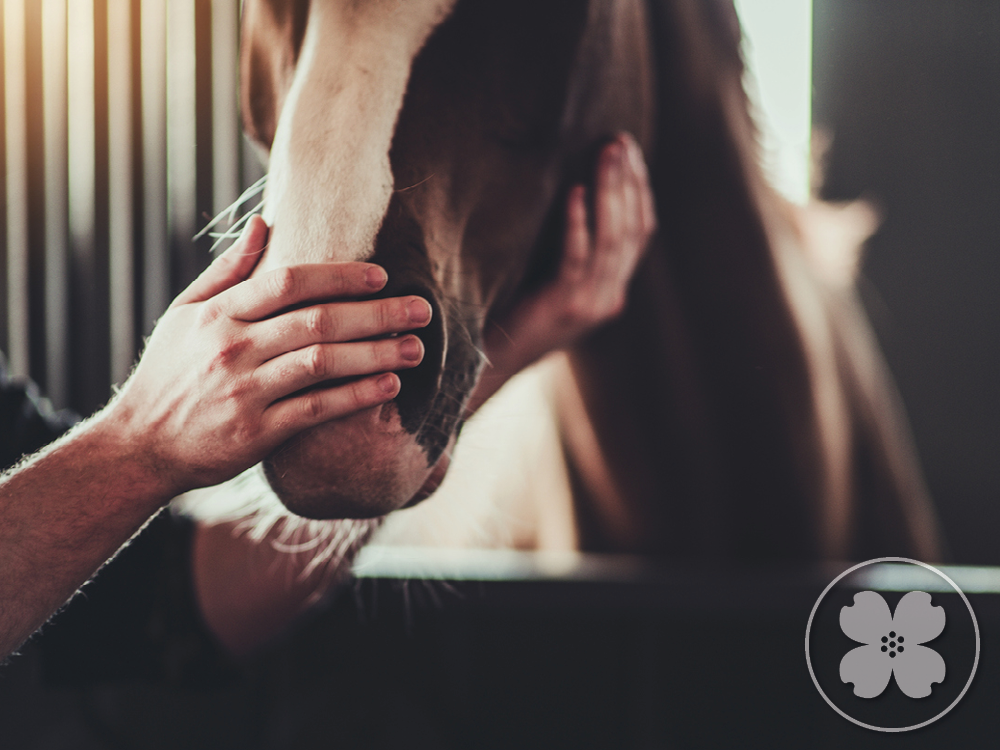For automotive enthusiasts, collectible vehicles often reflect a deep sense of history and personal legacy. From classic muscle cars to modern performance icons, thoughtful estate planning helps ensure these prized assets are protected, properly valued, and passed on according to your wishes.

By Beth Koppang, CTFA, ATFA – Senior Trust Officer & Relationship Manager
A Personal Story That Sparked a Conversation
Recently, I was speaking with a close friend whose elderly family member is preparing for major surgery this summer. During a conversation about estate planning, he expressed a desire to ensure his dog would be cared for in the event of an unfavorable outcome.
After the conversation, I shared an experience from my work as a trust administrator involving a horse trust and explained how establishing a trust could be an effective way to secure long-term care for any type of animal following an owner’s death.
Including Pets in Your Estate Plan
Providing for your pets should be an essential part of every animal owner’s estate plan. No matter the type of animal you own: for example a companion dog, a high-value horse, or an exotic bird, there are several strategies you can utilize in providing lifetime care.
A Real-World Example of a Horse Trust
In the example I shared, the horse owner had instructed her attorney to include a provision in her trust specifying that, upon her passing, her horses were to be placed with a designated caregiver and financially supported through the trust. She had no immediate family and viewed the horses as her children. In essence, they were the primary beneficiaries of her trust.
Once we were notified of the owner’s death, we placed the horses at a local veterinarian’s facility which was able to provide short-term boarding. Then following Missouri statute*, a separate trust was set up strictly for the benefit of the horses.
Fortunately, the value of the horse owner’s assets at her death was well over the cost of the horses’ care. Ultimately, when the last horse dies, remainder beneficiaries will receive the remaining assets from the horse trust.
Why Not Just Use a Will?
Animals are considered personal property and cannot legally be named as beneficiaries in a Last Will and Testament. While some high-profile cases, such as Leona Helmsley’s widely publicized $12 million bequest to her dog, have attempted this approach, it is not enforceable in a traditional sense.
You may, however, leave your pet to an individual, either with or without funds for their care. While this is a simpler method, it may not offer the greatest level of protection.
Circumstances often change over time. Moreover, how the caregiver uses the funds or treats the animal cannot be enforced through a will alone. This opens the possibility of the pet being re-homed, surrendered to a shelter, or even euthanized.
Advantages of a Pet Trust
Creating a trust allows for enforceable instructions and greater accountability. A trustee has a duty to ensure your pet receives the care outlined in the trust document. If a caregiver fails to meet those obligations, actions may be taken.
Additionally, a pet trust provides clear oversight on how funds are disbursed, helping ensure they are used solely for the benefit of the animal.
There are two primary types of pet trusts:
- A statutory trust created under your state’s existing legal framework
- A custom-drafted trust tailored to your specific wishes
A pet trust can also be structured as either:
- An inter vivos trust, created during your lifetime
- A testamentary trust, established under the terms of your will
While a trust involves additional complexity and cost, the peace of mind it provides—knowing your animal will receive proper care—is often well worth the investment.
Already Have a Living Trust? Here’s What to Do
What if you already have a living trust but it doesn’t take care of your pets?
Your estate planning attorney can assist you with options, such as:
- Amending your trust to include pet provisions
- Create a separate pet trust, then amend the living trust by adding language which references the pet trust
Protection in Case of Incapacity
Another advantage in creating a pet trust is that it can be utilized if the owner becomes incapacitated. A pet trust is not always established only after the death of the owner. It protects the pet if the owner goes into a memory care or other assisted living facility.
Choosing the Right Trustee
When deciding whether to choose an individual or corporate trustee, keep in mind corporate trustees take their fiduciary role very seriously. Benefits also include the level of experience, objectivity, and technical resources available. A professional investment manager who oversees the assets can help identify investment strategies to help provide for the long-term care of the animal.
Get Professional Guidance
With so many variations and details regarding the care of animals, it’s highly recommended to consult with your estate planning attorney.


